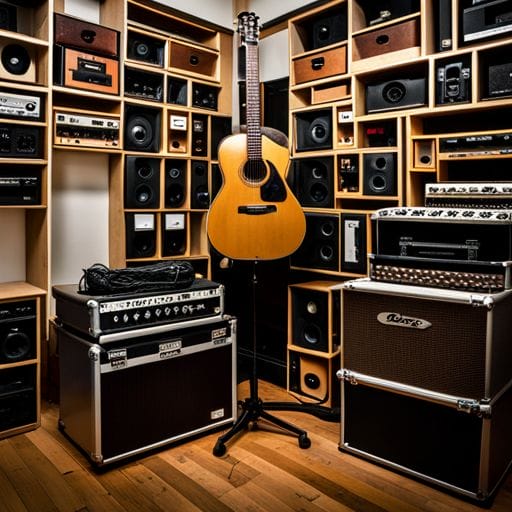What Is a DI Box? Do I Need One to Record Guitar?

How can a DI Box benefit guitar recordings?
Guitar recording is a task that requires a proper understanding of the tools and devices you use. One such device that often receives a noted mention within the realm of audio recording is a DI box. Despite its frequent mention, many individuals are unsure about what a DI Box is, why it is needed, or whether it is necessary while recording guitar. Let’s unravel these queries.
Defining a DI Box
A DI box, often referred to as Direct Box or Direct Injection box, serves as an essential tool in audio recording and live sound reinforcement, transforming high-impedance, unbalanced signals into low-impedance balanced signals. This transformation helps lessen unwanted noise and interference and facilitates long cable runs without signal degradation.
The Function of a DI Box
In a rudimentary sense, a DI box corrects the mismatch between line-level and mic-level signals. It does so by taking an unbalanced high-impedance signal from an instrument (like a guitar) and converting it into a balanced low-impedance one suitable for immediate linking to the console of a mixing desk.
Furthermore, DI boxes offer ground lift switches that can disconnect the ground from the input to the output. This is crucial because it combats and avoids hum or ground loops.
Do You Need a DI Box to Record a Guitar?
The necessity of a DI box while recording guitar largely depends on the type of guitar and the context in which it is being recorded.
Recording Electric or Bass Guitar
For electric or bass guitars, a DI box is not typically essential, as you can plug them directly into an audio interface with a high impedance (Hi-Z) input. This allows you to capture the cleanest version of your guitar sound, which you can later refine through amp simulators or re-amping.
Recording Acoustic Guitar
For acoustic guitars, especially those equipped with a pickup, a DI box becomes crucial. This is because it aids in extracting the cleanest and purest sound and tone possible. Furthermore, a DI box enables you to create a balanced output, reducing impedance, and ensuring longer cable runs without sound degradation.
To DI Box or Not to DI Box?
Ultimately, the answer to this question lies in your specific requirement and context. Some situations will call for the use of a DI box while other audio setups might do just fine without it. While recording high-quality professional guitar tracks in a studio, a DI box proves to be an impressive tool worth consideration. But for home recordings or simple setups, an audio interface with Hi-Z inputs can suffice.
It is crucial to remember that the quality of your recording doesn’t depend on a single tool or equipment but a combination of knowledge, experience, and the right collection of tools.
